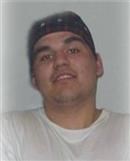THUNDER BAY -- After hearing a week's worth of testimony concerning the death of an 18-year-old Thunder Bay District Jail inmate, a coroner's jury emerged Friday afternoon with some recommendations focusing on the needs of Indigenous prisoners.
The inquest, mandatory under Ontario law because it involved the death of a person in custody, considered the death of Cody Thompson-Hardy in August of 2011.
Originally from Rocky bay First Nation, Thompson-Hardy died in hospital eight days after being found unresponsive in his cell.
A fellow inmate testified about the drug use the pair had engaged in during the days before he was hospitalized. Tests showed that Thompson-Hardy had methadone in his system.
The jury ruled his death accidental.
Its key recommendations include:
- separate accommodation in the planned new Thunder Bay District Jail for inmates prescribed methadone
- training for jail staff in administering naloxone to counteract the effects of opioid overdoses
- the specific recognition of cultural and spiritual support as a fundamental healthcare right
- the appointment of a native inmate liaison officer at the jail
- separate programming for young adult inmates
Emily Hill, co-counsel for Thompson-Hardy's family, said she feels the recommendations point to problems at the jail which the jury heard about throughout the week and which are no secret in the city and across the province.
"The issue of over-representation of aboriginal people in correctional facilities and their treatment is well-known," she said.
"I think there was a real concern flagged in this inquest about the care that aboriginal inmates can expect...When people go into facilities they are vulnerable and they are at risk, and it's important that the Ministry of Correctional Services and Community Safety be held to a high standard, and that the staff at the jail are really aware of what their responsibilities are."
Hill added that the Truth and Reconciliation Commission highlighted how Canada's correctional facilities are "the new residential schools."
She said the inquest was told that the District Jail has an inmate population that is 80 per cent Indigenous, and that means "we need to start doing things differently."
Correctional staff, nurses, health care managers, doctors, and anyone else who works directly with inmates, Hill said, needs to be trained in how to appropriately address the unique circumstances of Indigenous inmates.
